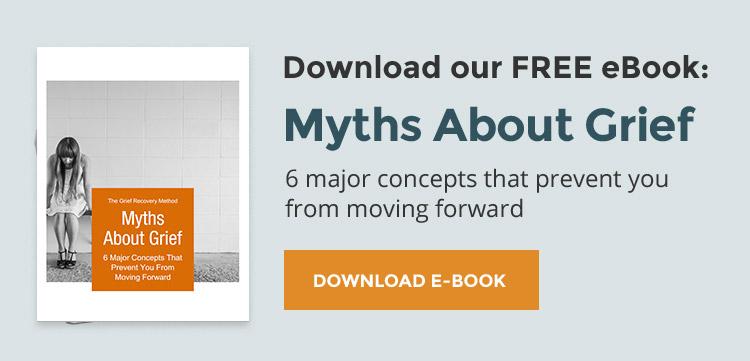Those of you who follow The Grief Recovery Method website will remember the recent DSM 5 Controversy. A two-year battle to shine the light on the travesty that is the DSM-5. If you remember, it is the Diagnostic and Statistical Manual of Mental Disorders which defines the normal sadness following a loss as a mental disorder.
In effect, it states that if a person is still experiencing sadness two weeks following a death, they are suffering from an MDE—a major depressive episode. Please think about that. Let’s assume a widow has just lost her spouse of 58 years. Is she not entitled to be sad for more than two weeks before some untrained therapist or GP diagnoses her with a mental disorder?
Thankfully, this preposterous idea has been repudiated around the globe, so much so, that there are organized formal boycotts strongly suggesting that professionals not purchase the DSM-5 and use appropriate ICD codes instead.
As this travesty unfolds, we are finding that some in the professional therapy community are trying to address the normal and natural reaction to loss, which is grief, with a technique called Cognitive Behavioral Therapy or CBT.
About Cognitive Behavioral Therapy
CBT is a type of psychotherapeutic treatment that helps patients understand the thoughts and feelings that influence behaviors. CBT is commonly used to treat a wide range of disorders including phobias, addictions, depression and anxiety. Please note that grief is normal and natural and therefore not a disorder, a phobia, depression nor anxiety.

Grief is normal and natural
As so often happens, we see the attempt to use the the intellect to try to heal the heart. In the case of CBT, “if I can just use my intellect differently, my grief will somehow evaporate.” Of course that cannot work since the intellect is not broken, nor is it the correct vehicle for dealing with incomplete or unresolved grief. It’s true that the CBT model has been used with some success to treat addictions, but again, grief is the normal and natural reaction to loss—NOT an addiction.
Now we move on to a recent study by a Harvard University professor who suggests rituals can alleviate the emotional pain caused by loss. Their synopsis states; "Rituals not only have the power to alleviate grief, but also serve to enhance the experience of consuming food—even something as mundane as a carrot."
Intellect can't fix grief
If you are familiar with our 37 years of experience in the trenches working with grievers, you will recognize that the above sentence is merely perpetuating Short Term Energy Relieving Behaviors [STERBs], of which eating is the most common. But STERBs do not alleviate grief, instead they either drive it further underground, maybe to be dealt with later, or worse, not at all. The net effect is to limit the griever forever by not dealing with the grief directly and effectively.

We realize it is difficult for these professional groups to let go of their belief that everything can be fixed with intellect or drugs, but we wish they would get some help from true professionals in the grief recovery field before muddying the waters further.
If you found this article, DSM 5 Grief: The Assault of Grievers Continues, helpful, you may also find these articles useful information:
The Best Grief Definition You Will Find
10 things you need to know about the grieving process
Understanding Grief: Still the most off limits topic (Grief Myths Intro)


























Comments
Anonymous
This is a fantastic article.
Add new comment